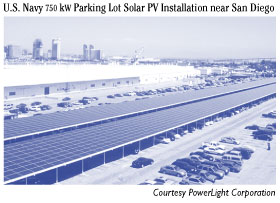
I have been going around the country speaking about my new book, Carbon-Free and Nuclear-Free: A Roadmap for U.S. Energy Policy. (Download it free)
Nothing I have done in 37 years of work on energy, environment, and nuclear weapons and power issues has caught on like this.
As evidence of serious and rapid climate change mounts and a price on carbon emissions looks more and more certain, companies’ coal-fired power plants are hard to justify and harder to finance. So the nuclear industry wants to ride into town as the savior. Having failed to deliver electricity “too cheap to meter” (promised in the 1950s by the Chairman of the Atomic Energy Commission, Lewis Strauss), it now wants massive new government subsidies in the form of loan guarantees.
But it is a false choice. Those who oppose nuclear power as the “solution” to the global climate crisis are right: a combination of efficiency, renewable energy, combined heat and power, and emerging technologies such as plug-in hybrid cars can allow us to phase out all fossil fuels and nuclear power in 30 to 50 years.
Eight new nuclear reactors are being proposed in Texas alone. The two near Amarillo, in the panhandle, will consume 60 million gallons of water every day—more than what the entire city uses. The company proposing the plant has said there is a lake there in an unidentified location that will supply the water. In Idaho, the CEO of Alternate Energy Holdings, which wants to build a power plant there, implies that nuclear power will cost only 1 to 2 cents per kilowatt-hour, because capital cost is borne by the investors, as if Wall Street were a kind of charity for electricity consumers. Far from it. Wall Street got burned by nuclear power in the 1980s; it is leery of financing them. That’s why the nuclear industry has the largest hat in hand in Washington, D.C. asking for handouts such as license application subsidies and 100 percent loan guarantees.
But at least some investors are catching on. Mid-American Energy, owned by Warren Buffet’s Berkshire Hathaway, announced last month (January 2008) that it was abandoning plans to build a nuclear power plant in Idaho because it could not provide economical power to its customers. Austin Energy, the city-owned utility in the capital of Texas, has recommended that the City vote not to buy a share of the two proposed reactors near Bay City Texas. The investment would, at this time, be “unwise” and imprudent” said the utility, because of insufficient time to examine the paperwork and the risk of cost overruns and delays.
Here is a link to a summary of my book (Note: 2.5 MB pdf)
and to an op ed I recently wrote for the Deseret News (Salt Lake City)
I invite you to comment on the analysis in my book, on what you are doing in your neighborhood, city, county, or state regarding energy and climate and to link to my blog.
–Arjun